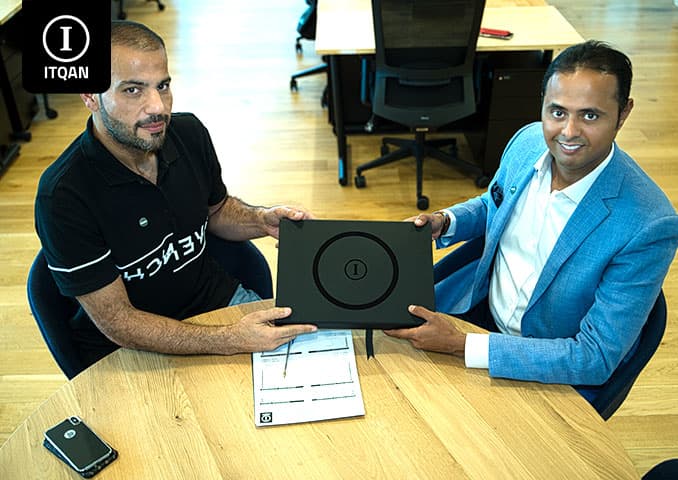Opening a company in Dubai is a smart investment decision for investors and entrepreneurs looking for a dynamic and thriving business environment. As a global business hub, Dubai offers a range of advantages that make it an attractive destination for businesses of all sizes and sectors. Located in the heart of the Middle East, Dubai offers advanced infrastructure, a flexible regulatory environment, and diverse investment opportunities that make it one of the most unique places to set up a business.
The benefits that Dubai offers to investors include tax exemptions, customs facilities, and encouraging trade policies. Dubai operates several free zones that provide 100% foreign ownership of companies, giving investors complete freedom to run their businesses without the need for a local partner. Proximity to the markets of the Middle East, Asia, and Africa also enhances the competitiveness of companies and gives them access to a wide customer base.
The process of setting up a company in Dubai begins with determining the appropriate type of company for the business, whether it is a limited liability company (LLC), a branch of an international company, or even a company in a free zone. This requires submitting a range of documents, including passports, a business plan, and a lease agreement. The licenses required vary depending on the type of business, requiring checking local legal and administrative requirements to ensure full compliance.

جدول المحتوى
ToggleHow to open a company in Dubai
Opening a company in Dubai requires following organized steps to ensure compliance with local laws and regulations. Here are the steps to open a company in Dubai:
- Select the type of company: Choose the type of company you wish to establish (such as a limited liability company, a joint-stock company, a branch of an international company, or a free zone company).
- Determine the business activity: Determine the type of business activity your company will be conducting, as this will affect the type of license you will need.
- Choosing a trade name: Choose a trade name that complies with Dubai laws and is not similar to existing business names. You may need to check the trade name with the Department of Economic Development (DED) or the administrative authority of the free zone.
- Choosing a company location: Locate your office either in a free zone or a commercial zone. Free zones offer several benefits such as tax exemptions and flexibility in licensing.
- Document Preparation: Prepare necessary documents such as passports, passport photos, office lease contract, and certificate of good conduct for investors and managers.
- Submit a license application: Apply for the appropriate license from the Department of Economic Development (DED) if you are operating outside the free zones, or from the free zone administrative authority if you are in a free zone.
- Open a bank account: Open a bank account in the company’s name at a local bank. You will need to provide the company’s legal documents.
- Company Registration: Register your company in the commercial registers and obtain a registration certificate.
- Health and Workers Insurance: Ensure compliance with health and workers insurance requirements for employees.
- Obtaining Visas: Apply for work and residence visas for employees and owners.
- Tax Registration: Register your company with the Federal Tax Authority if your company is subject to Value Added Tax (VAT).
- Comply with local laws: Ensure that you comply with all local laws and regulations related to your company’s activities.
- Starting Operations: After completing all the procedures, you can officially start operating your company.
Types of companies that can be established in Dubai
Here is a table showing the types of companies that can be established in Dubai with some basic details about each type:
| Company Type | Features | Restrictions |
|---|---|---|
| Limited Liability Company (LLC) | – Limited ownership for investors – Limited liability for members – Flexibility in management |
– Requires a local partner with 51% of the shares – Cannot be established in free zones |
| Private Joint Stock Company | – Can be owned by one party or a group – Potentially high returns |
– Requires minimal capital – More complicated registration procedures |
| Public Joint Stock Company | – Publicly traded – Suitable for large companies |
– High capital requirements – Strict regulatory oversight |
| Branch of a foreign company | – Allows international companies to operate in Dubai – Flexibility in using the trademark |
– Parent company must be located abroad – Restrictions on business activities |
| Free Zone Company | – Tax exemptions – 100% foreign ownership – Simplified registration procedures |
– Restricted to activities that can be carried out within the free zone – Not allowed to operate outside the free zone |
| partnership | – Flexibility in management – Distribution of profits and losses according to agreement |
– Unlimited liability for partners – Some business activities cannot be practiced |
| Joint stock company | – All partners are jointly liable for the company’s debts – Easy to establish |
– Unlimited liability – Requires local partners |
Documents required to open a company in Dubai
To open a company in Dubai , you will need to submit a set of basic documents to ensure that all legal requirements are met. Here is a list of the required documents:
- Passport: Copy of passport for each shareholder and director.
- Personal Photographs: Recent personal photographs of both shareholders and directors.
- Visas and Residency: A copy of the investors’ residency visas, if available.
- Lease Agreement: Lease agreement for the office or workspace in Dubai. If you are choosing a free zone, you will need a lease agreement from the free zone’s governing body.
- Certificate of Good Conduct: Certificate of good conduct for investors and managers from local authorities.
- Articles of Association and Memorandum of Association: Legal documents that define the company’s structure, objectives, and rules for its management.
- Business Plan Report: A business plan that outlines the company’s goals, strategies, and market analysis.
- Other legal documents: such as partnership agreements or special understandings, if required.
- Special Licenses: If the company operates in a sector that requires special licenses (such as healthcare or education), you will need to provide the necessary documents to obtain these licenses.
- Regulatory Approval: In some cases, you may need to obtain approval from the relevant regulatory authorities depending on the type of business the company is operating in.
- Investors’ personal data: Additional information such as address, marital status, and academic qualifications if required.
- Signing the incorporation form: The incorporation form that may require the signatures of all shareholders or directors.
Taxes to be paid when opening a company in Dubai
When opening a company in Dubai, there is one major tax you need to consider:
- Value Added Tax (VAT): Value Added Tax (VAT) was introduced in the UAE from 1 January 2018. VAT is levied at a rate of 5% on most goods and services in the country. Businesses must register for VAT if their annual revenue exceeds the threshold.
- Income Tax: In the UAE, companies are often exempt from income tax. However, there are exceptions for some sectors such as oil and gas and banking.
- Sales Tax: Sales tax is part of Value Added Tax (VAT), which is levied at 5% on most goods and services.
- Regressive Property Tax: There may be a regressive property tax if the company owns real estate in Dubai.
- Business License Fees: In addition to taxes, businesses must pay business license fees and annual renewals to maintain business legitimacy.
In conclusion, Dubai is an ideal platform for setting up companies in Dubai thanks to its attractive investment environment and simplified procedures that allow investors to start their businesses efficiently and quickly. Flexible laws, tax benefits, and logistical facilities make Dubai a preferred destination for ambitious investors.
Dubai offers many opportunities that can be very successful for businesses, including access to new markets, benefiting from technological innovations, and boosting economic growth. The process of opening a company in Dubai, although it requires some legal and administrative procedures, is supported by a strong government support system and specialized consulting services such as those provided by companies such as Itqan.
By taking advantage of the facilities provided and understanding the incorporation requirements carefully, investors can come up with a customized solution that meets their business needs and enhances their chances of success. Starting a business in Dubai is not just a step towards achieving business goals, but a long-term investment in a vibrant business environment that offers tremendous growth potential. After all, Dubai is a beacon for global business, offering a unique opportunity to succeed in the modern business world.
Top Frequently Asked Questions About Opening a Company in Dubai
The most important frequently asked questions about opening a company in Dubai
What taxes do I have to pay when opening a company in Dubai?
Dubai offers corporate income tax exemption in most cases. There may be a tax on activities such as banking and the oil sector. A 5% value added tax applies to goods and services in some cases.
Can a free zone company operate outside the free zone?
No, companies in free zones are usually restricted to operating within the free zone, and need to open another branch to operate outside it.
How long does it take to set up a company in Dubai?
The process of establishing a company can take from several weeks to several months, depending on the type of company and the complexity of the procedures.
Can foreigners open a company in Dubai?
Yes, foreigners can open companies in Dubai under local laws, but there may be some restrictions or conditions.
What are the legal procedures required to open a company in Dubai?
Specific procedures must be followed, including selecting the type of company, preparing the required documents, submitting the application, paying the fees, and obtaining the company license.

















